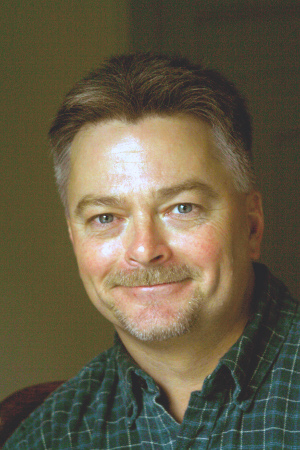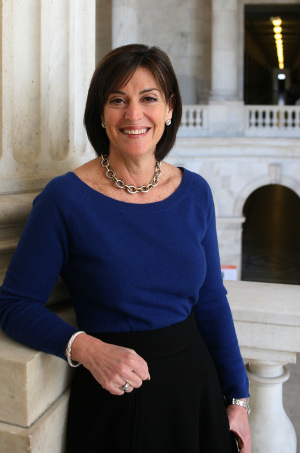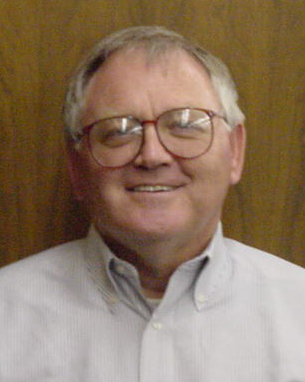
Frank LoMonte heads a group that assists student journalists and journalism instructors. Courtesy photo.
Sunshine Week 2009 takes place from March 15 through 21. The annual event is about the public's right to know what its government is doing, and why. Sunshine Week seeks to enlighten and empower people to play an active role in their government at all levels, and to give them access to information that makes their lives better and their communities stronger. Lake County News will present guest commentaries and news stories about open government as part of this year's Sunshine Week.
Education is a $600 billion-a-year industry, and – as the single largest expense of state and local government – it deserves public scrutiny and demands public accountability.
Yet it's already difficult for parents and journalists to get reliable information about the performance of schools, because so much is cloaked under federal privacy regulations. And thanks to the U.S. Department of Education (DOE), the burden is worsening from difficult to impossible.
Over the objections of open-government advocates, departing Bush Administration officials at the DOE pushed through ill-considered eleventh-hour revisions to the Family Educational Rights and Privacy Act, or FERPA, which took effect Jan. 9.
FERPA, a 1974 federal privacy law, merely says that schools and colleges cannot publicly release individually identifying student "educational records" without consent. It clearly was meant to apply to grades, transcripts, attendance sheets and other "educational" information that most everyone agrees should be private.
Because of ignorance, bad legal advice, or simply a desire to avoid public scrutiny, far too many school officials ignore the limited scope of FERPA and invoke the law to conceal anything and everything they can.
At the Student Press Law Center, our phone rings daily with calls from exasperated student journalists who've been told by their principal some variation of the wacky urban legend that FERPA prevents them from publishing a photo of the homecoming queen unless they get a signed parental consent form in advance. That's not only wrong, it's just plain dumb – yet it is happening all over the country:
In Wisconsin, a college newspaper was told that tape recordings and minutes of public meetings in which student committee members took part were "confidential educational records," and the paper could have the tapes only with the students' voices edited out.
A newspaper in Ohio was told that the list of passengers flying on a college football team's airplane was a private "educational" record.
A college in Virginia recently refused to release even the number of sexual assault cases handled by the college's "judicial affairs" office, invoking FERPA.
"Over-compliance" with FERPA is so rampant and so widely documented that you'd assume the DOE – which is in charge of interpreting the Act – would take every opportunity to clarify that the law should be applied narrowly.
Sadly, DOE has taken the opposite approach. The Department's new regulations are making FERPA even more confusing to administer – and when confused, schools inevitably err on the side of releasing nothing at all.
Up until January, it was fairly clear – to the courts, if not to schools – that documents with names, addresses and Social Security numbers blacked out were no longer confidential FERPA records and could safely be released. Reporters routinely make such requests to, for instance, find out how many people were expelled for drugs or cheating in a given year.
But the DOE now is taking the position that schools may not release even blacked-out records if the school believes: (1) that the requester knows the individual that he is asking about, or (2) that the record refers to an incident well-known to people within the school, even if not known to the requester.
Stunningly, this is the example that the DOE gave in issuing its rule: if a requester wants to know how many students were punished for bringing guns to school in a particular year, and what punishments they received, the school should release no information at all, because people within the school will know which students brought guns to school. (Presumably, DOE's concern is that, if only two people brought guns to school, and school records show that two people received three-week suspensions, people within the school will be able to figure out that Billy and Bobby were the ones suspended.)
You haven't fallen down a rabbit hole into Wonderland – this is really the Department's position: that because everyone at school already knows what is in the records, that makes them secret.
We are already seeing the impact of DOE's regs in action. In February, the Springfield, Mo., school district released a new set of guidelines for handling school emergencies in light of the FERPA revisions. The district has always made available name-redacted reports of incidents reported to school police officers – but now has started redacting not only student names, but the dates of the incidents and the schools at which they occurred, citing FERPA.
So a typical police report will now say: "An unnamed person at an unnamed school on an unnamed date reported being robbed." Worse, the district's lawyers now say that, if a school is under security lockdown due to a safety threat, the district will no longer confirm which school is locked down; any announcement will simply say "a high school" or "an elementary school." Now there’s a recipe for minimizing public panic!
The Department has downplayed the impact of its changes, describing them as merely formalizing the DOE's informal guidance. What the Department fails to mention is that DOE's guidance – that records with identifying information redacted can still be confidential – has never been accepted by any court.
The DOE's view was rejected most recently in the Montana Supreme Court's 2007 decision, Board of Trustees, Cut Bank Public Schools v. Cut Bank Pioneer Press.
In that case, the Pioneer Press sought information about how two students at a local high school were punished for shooting people with BB guns. The Pioneer Press made a request under Montana’s open-records act for the results of the disciplinary proceedings, and specifically said that identifying information about the students could be blacked out. The school cited FERPA and refused to honor the request.
The Montana Supreme Court ruled in May 2007 that FERPA did not justify withholding the records in redacted form – no matter that the newspaper obviously knew the two students to whom the records pertained. The Montana ruling followed similar FERPA interpretations by federal district courts in New York and Miami.
In other words, DOE – having lost repeatedly in court – is attempting by rulemaking to make FERPA say what it doesn’t.
All 50 states have enacted laws requiring schools to make their documents open for public scrutiny, with limited exceptions for truly private material such as medical records. Because FERPA flies in the face of that overwhelming national consensus, it should be given the narrowest possible interpretation – exactly the opposite of the approach taken by DOE, which freely admits that in drafting the new regulations, it gave zero weight to public accountability.
The Department of Education is under new leadership, and Secretary Arne Duncan has an opportunity to pull in the agency's reckless FERPA interpretation for repairs. In the interim, requesters should go forward with confidence that the January 2009 rule is no more than the Wonderland nightmare from which Alice will soon awake – for if the DOE does not voluntarily remedy the damage it has done, a harsh wake-up call will be coming from the courts.
LoMonte is executive director of the Student Press Law Center, in Arlington, Va., a nonprofit legal assistance center for student journalists and journalism instructors.
{mos_sb_discuss:4}











